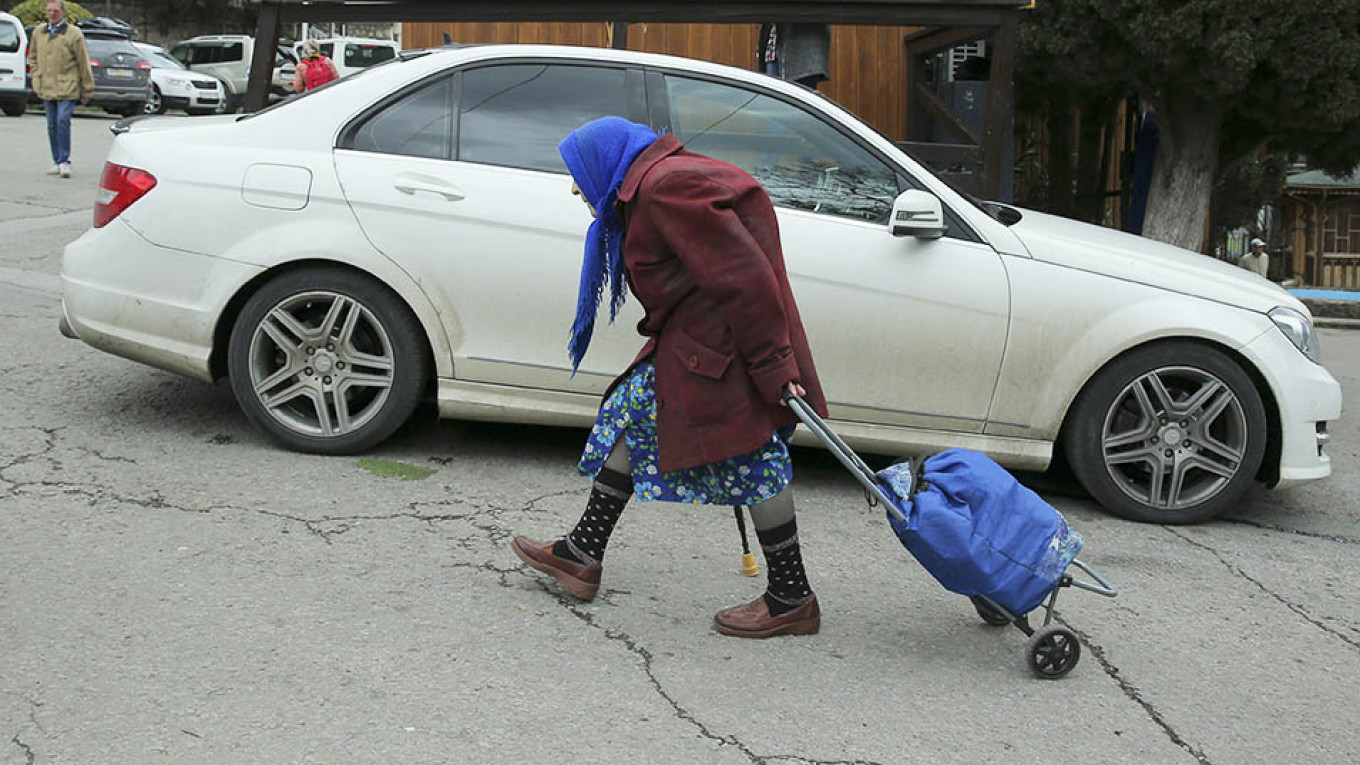On Monday, the mayor of Moscow told older Russians to either stay at home or escape to their country houses to avoid exposure to the coronavirus.
In a video on his website, Mayor Sergei Sobyanin said that those over the age of 65 "must comply with an at-home regimen" between March 26 and April 14. "You may not like it and even oppose it, but trust me, it is dictated by sincere concern for you," said the mayor, who has been tasked with heading Russia's overall coronavirus response.
Russia has so far reported 438 infections, the majority of them in Moscow, the country's largest city with more than 12 million inhabitants. The country has gradually tightened restrictions, halting cultural and sports events, switching schools to distance learning, and closing fitness clubs. It has also closed borders to almost all non-citizens.
However, unlike many countries in Asia and Europe, the national government has not ordered any confinement.
"You can go to the shop or the pharmacy only when you need to," Sobyanin said, listing a number to call if help is needed.
"The best thing to do, if you can, is to go to your dacha, especially since the weather promises to be warm."
Many big-city residents in Russia have country homes known as dachas, usually simple cottages with gardens on small plots of land, where they go at weekends and in summer.
Sobyanin did not say whether non-compliant pensioners would be punished, but says that those in the age group complying with the rules will be compensated with a total of 4,000 rubles ($50). He also advised young people to "avoid personal communication with older people" to prevent infection from spreading, and to help their older neighbors who live alone.
One person who was infected with the virus in Russia has died but officials are not linking the death to the virus.
A Message from The Moscow Times:
Dear readers,
We are facing unprecedented challenges. Russia's Prosecutor General's Office has designated The Moscow Times as an "undesirable" organization, criminalizing our work and putting our staff at risk of prosecution. This follows our earlier unjust labeling as a "foreign agent."
These actions are direct attempts to silence independent journalism in Russia. The authorities claim our work "discredits the decisions of the Russian leadership." We see things differently: we strive to provide accurate, unbiased reporting on Russia.
We, the journalists of The Moscow Times, refuse to be silenced. But to continue our work, we need your help.
Your support, no matter how small, makes a world of difference. If you can, please support us monthly starting from just $2. It's quick to set up, and every contribution makes a significant impact.
By supporting The Moscow Times, you're defending open, independent journalism in the face of repression. Thank you for standing with us.
Remind me later.






